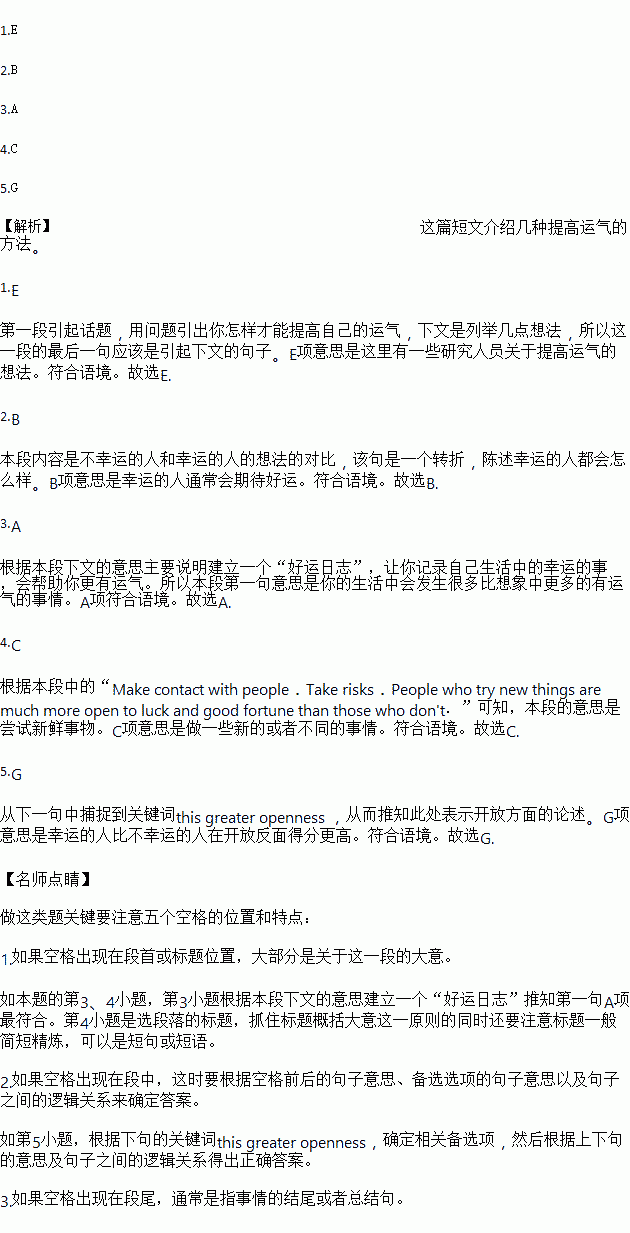题目内容
Ways to Improve Your Luck
Some people have all the luck!Or does it just seem that way?Why did your co-worker get that big promotion while you were overlooked?Why do some of us seem to experience these lucky things more than others and how can you improve your luck?1.
What You Tell Yourself Matters!
Do you know that people who are lucky tell themselves they're lucky?Has your own self-talk been filled with less-than-lucky talk?Do you say things like:"I'm just not a lucky person."or "Good things never happen to me?" 2.They say things like---"This setback is only temporary.I know things will turn around."or"Things have a way of working out for me."
Expect and Acknowledge Your Good Luck.
3. Research suggests keeping a "good luck journal" helps people become even luckier.Did someone bring you coffee at work today?Did you find a random quarter on the street?Did your husband or wife do something nice for you today?Did your child get a good grade at school?Write them down! 4. Begin to notice all the good that comes to you.
Do Something New and Different.
Make contact with people.Take risks.People who try new things are much more open to luck and good fortune than those who don't.This doesn't mean you have to quit your job or take up skydiving! It could be as simple as starting a conversation with a stranger,taking a class in an unfamiliar subject, learning some words and phrases in a foreign language,or trying a new ethnic restaurant.5. And this greater openness can help promote chance opportunities in their lives.
A.You probably have many more lucky things happening in your life than you think.
B.Lucky people generally expect good fortune.
C.All of these things count.
D.You will never forget your lucky friends.
E.Here are ideas that researchers tell us about luck.
F.A lucky person generally receive good fortune in the future.
G.Lucky people score much higher on openness than unlucky people.

